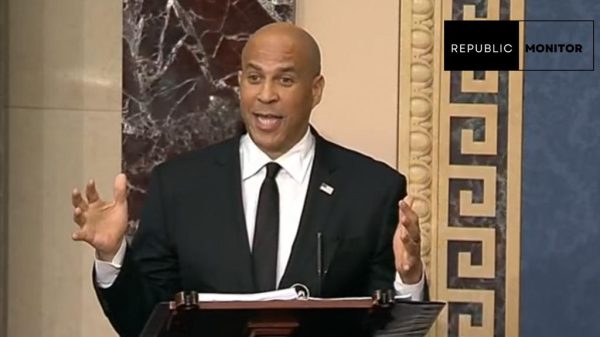In a significant bipartisan move, a $79 billion tax cut package has been passed, aiming to enhance the child tax credit for American families. While heralded as a positive step, it’s essential to grasp the specific criteria that determine who can benefit from this tax windfall and to what extent.

Increasing Family Budgets: How the New Tax Law Will Affect Child Tax Credits
A Boost for 16 Million Families
Representative Jason Smith and Senator Ron Wyden spearheaded the negotiations leading to the bipartisan tax bill. Projected to impact a substantial 16 million families, the bill focuses on expanding child tax credits, injecting much-needed financial support into households across the nation.
Rep. Richard Neal, D-Mass., highlighted the simplicity of the bill’s objective, stating, “Sixteen million children will benefit from the improvement to the child tax credit. That’s a fact.”
Up to $2,000 per Child
Eligible families stand to receive a tax credit ranging from $1,800 up to $2,000, dependent on specific factors. However, not everyone automatically qualifies for these benefits. Taxpayers can only enjoy these advantages if they are already receiving the credits, and only children with social security numbers are eligible.
Crucially, undocumented immigrants are excluded from the bill’s coverage, emphasizing the targeted nature of the legislation. As the bill undergoes potential changes in the Senate, it is crucial for parents and business owners to stay informed about how it may impact them directly.
A Closer Look at Tax Breaks for Businesses
The tax legislation extends its reach beyond families to include benefits for businesses. The bill provides a boost to three key tax breaks for businesses, signaling a win for both sides of the political spectrum. These breaks are designed to extend through 2025, offering businesses greater flexibility in deducting borrowing expenses.
Additionally, the legislation supports trade with Taiwan, implementing benefits to foster international economic relationships. Businesses will find themselves with more tools at their disposal to navigate financial landscapes, contributing to economic growth and stability.
Beyond Financial Incentives
The legislation goes beyond individual and business tax benefits. It introduces measures to create tax benefits for individuals affected by natural disasters, emphasizing the importance of community support during challenging times. Furthermore, the bill strengthens the low-income housing tax credit, potentially adding an estimated 200,000 housing units nationwide.
In essence, the bipartisan tax bill seeks to address multiple facets of the American economy, providing financial relief to families, empowering businesses, and fostering community resilience in the face of natural disasters.
Conclusion
As families and businesses navigate the ever-changing landscape of tax legislation, staying informed remains paramount. Understanding the eligibility criteria, credit amounts, and broader economic implications ensures that individuals and businesses alike can make informed financial decisions.
In conclusion, the tax bill’s passage underscores the importance of bipartisan efforts in addressing economic challenges. By focusing on both individual and business needs, the legislation aims to create a more robust and resilient financial foundation for all.
















